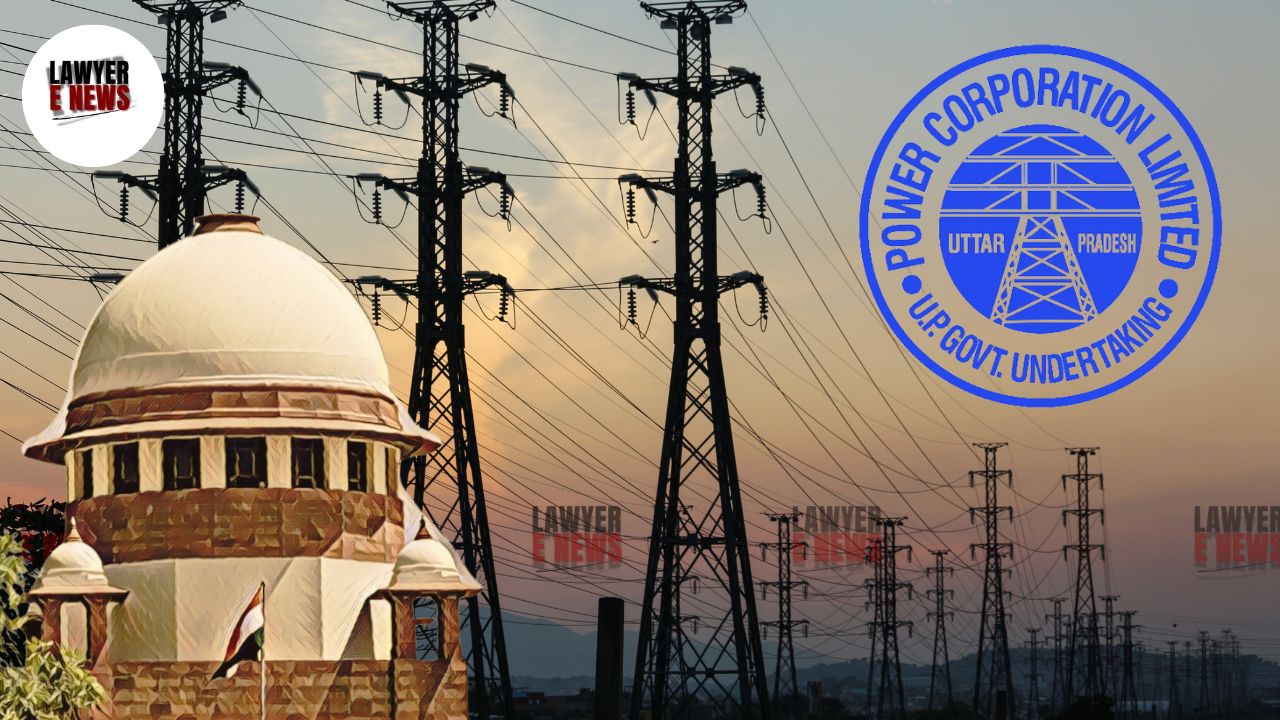-
by Admin
15 February 2026 5:35 AM



"Candidates possessing CCC certificates by the interview stage were eligible, and their termination by the Corporation based on the lack of the certificate by the application deadline was erroneous." – Supreme Court
Supreme Court of India, in Mukul Kumar Tyagi v. The State of Uttar Pradesh & Others, ruled in favor of several candidates selected under the 2014 recruitment drive for Technician Grade-II (Electrical) posts in the Uttar Pradesh Power Corporation Limited (UPPCL). The court deemed the termination of candidates based on the late submission of a mandatory CCC (Computer Concepts Course) certificate as arbitrary. The Supreme Court directed the reinstatement of candidates who possessed the required certification by the interview stage, thus reinforcing the importance of procedural consistency in public employment requirements.
The dispute arose from a 2014 recruitment process for Technician Grade-II (Electrical) positions within UPPCL. The recruitment advertisement mandated that applicants possess a CCC certificate from DOEACC/NIELIT or an equivalent qualification by the interview stage. However, after the final selection list was published in 2015, certain unsuccessful candidates challenged the eligibility of selected candidates who had obtained their CCC certificates after the application deadline but before the interview.
The Single Judge of the Allahabad High Court initially ruled in 2017 that candidates without CCC certificates recognized by DOEACC/NIELIT should be excluded from the selection list, which led to the termination of many candidates. The Allahabad High Court Division Bench subsequently overturned this decision, but the matter eventually reached the Supreme Court, which affirmed the Single Judge's position regarding recognized certification requirements. Following further legal proceedings, terminated candidates appealed to the Supreme Court for reinstatement.
A central issue was the timing of the CCC certification requirement. UPPCL argued that candidates were required to have the CCC certification by the application deadline. However, the 2014 advertisement stipulated that the certificate should be produced by the time of the interview. The Supreme Court held that:
"The respondent-Corporation has grossly erred in terminating the services of such candidates who had produced the CCC certificate at the time of interview."
The court found that UPPCL’s interpretation of the application deadline as the cutoff for certification was contrary to both the recruitment advertisement and the amended service regulations from 2011, which required the CCC certificate by the interview stage.
The court reiterated the importance of recognized qualifications in public appointments under Article 16 of the Constitution. It rejected self-certified equivalent qualifications, emphasizing that:
"No rights can be recognized in a candidate aspiring to enter public service on the strength of an unrecognized qualification or one granted by an institution which is not conferred the authority to grant the same in accordance with law."
Thus, only CCC certificates from recognized bodies like DOEACC/NIELIT or formally equivalent qualifications were valid.
The Supreme Court held that the recruitment advertisement and regulations were clear in requiring the CCC certificate at the interview stage, not at the application deadline. Consequently, it rejected UPPCL's stance that candidates without the CCC certificate by the application date were ineligible:
"Eligibility compliance at interview suffices under the amended service regulations."
The court noted UPPCL’s inconsistent legal positions throughout the litigation. Initially, UPPCL had accepted self-certified equivalency qualifications and DOEACC/NIELIT certifications, only to later argue for stricter adherence to the application deadline for CCC certification. The Supreme Court criticized this lack of consistency:
"The respondent-Corporation’s shifting stances on eligibility constituted a breach of consistent legal approach in hiring practices."
Invoking its powers under Article 142 of the Constitution, the Supreme Court granted equitable relief by ordering reinstatement of the terminated candidates. However, the court limited relief by denying back wages:
"Though they would not be entitled to back wages for the period during which they were out of employment, they would be entitled to placement in the seniority list as per their positions in the select list dated 14th July 2015 with continuity in service with all consequential benefits including pay fixation, terminal benefits etc."
Reinstatement: Candidates who were in the select list of July 2015 and had obtained their CCC certificate by the interview date were ordered to be reinstated immediately.
Seniority and Continuity of Service: Reinstated candidates were granted continuity in service, seniority as per the original select list, and all consequential benefits, including pay fixation and terminal benefits.
No Back Wages: The reinstated candidates would not receive back wages for the period they were out of employment.
The court clarified that these directions were necessary to rectify UPPCL’s erroneous interpretation of eligibility criteria, stating that failure to provide relief would perpetuate an injustice against the eligible candidates.
The Supreme Court’s decision in Mukul Kumar Tyagi v. The State of Uttar Pradesh & Others underscores the importance of adhering to procedural clarity and consistency in recruitment practices for public employment. The ruling emphasizes that eligibility requirements must align with recruitment notifications and regulations, and public authorities must maintain a consistent stance to avoid arbitrary decisions. This judgment provides significant relief to candidates affected by UPPCL’s misinterpretation and sets a precedent for adherence to transparent employment criteria in public sector recruitments.
Date of Decision: November 5, 2024
Mukul Kumar Tyagi v. The State of Uttar Pradesh & Others
